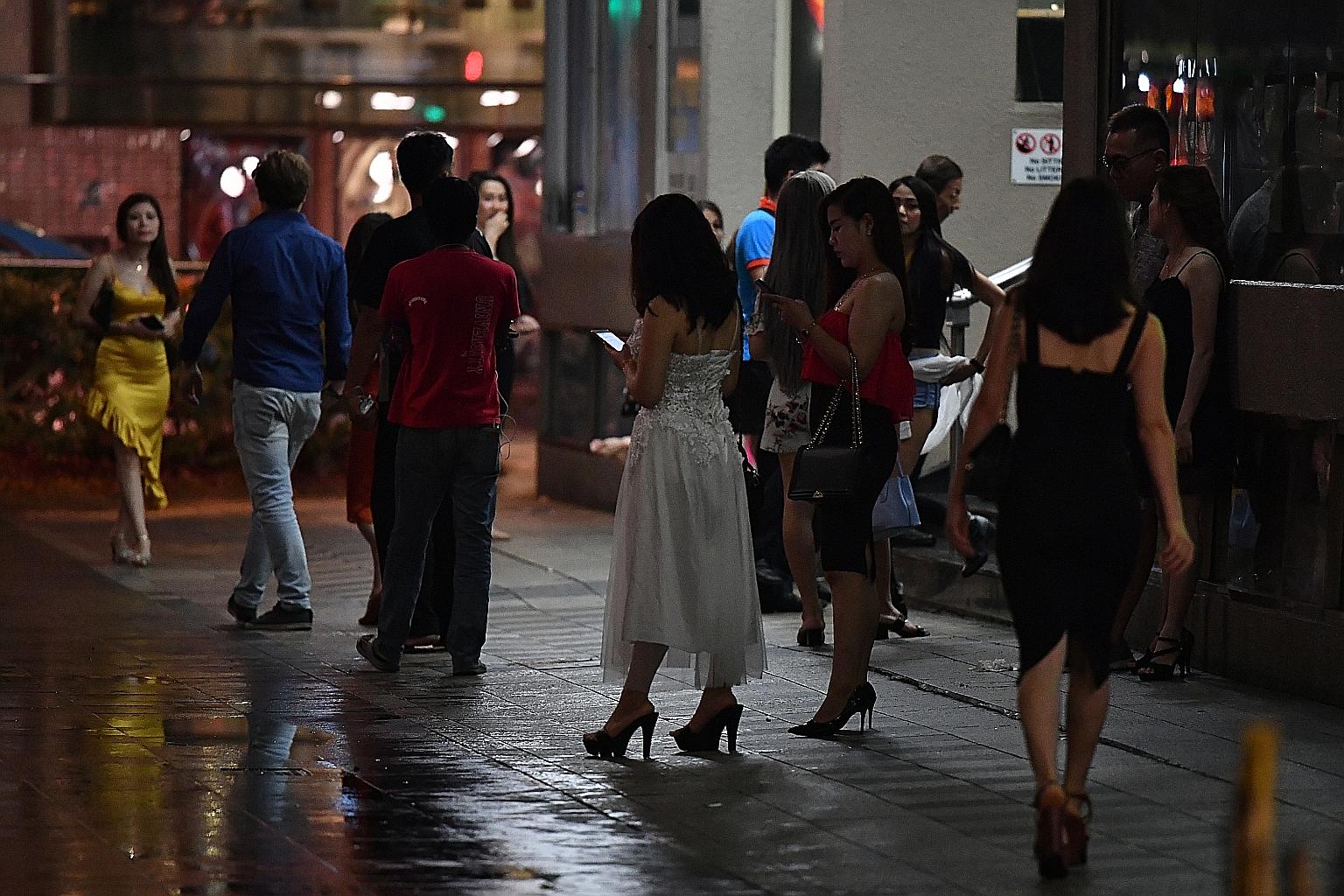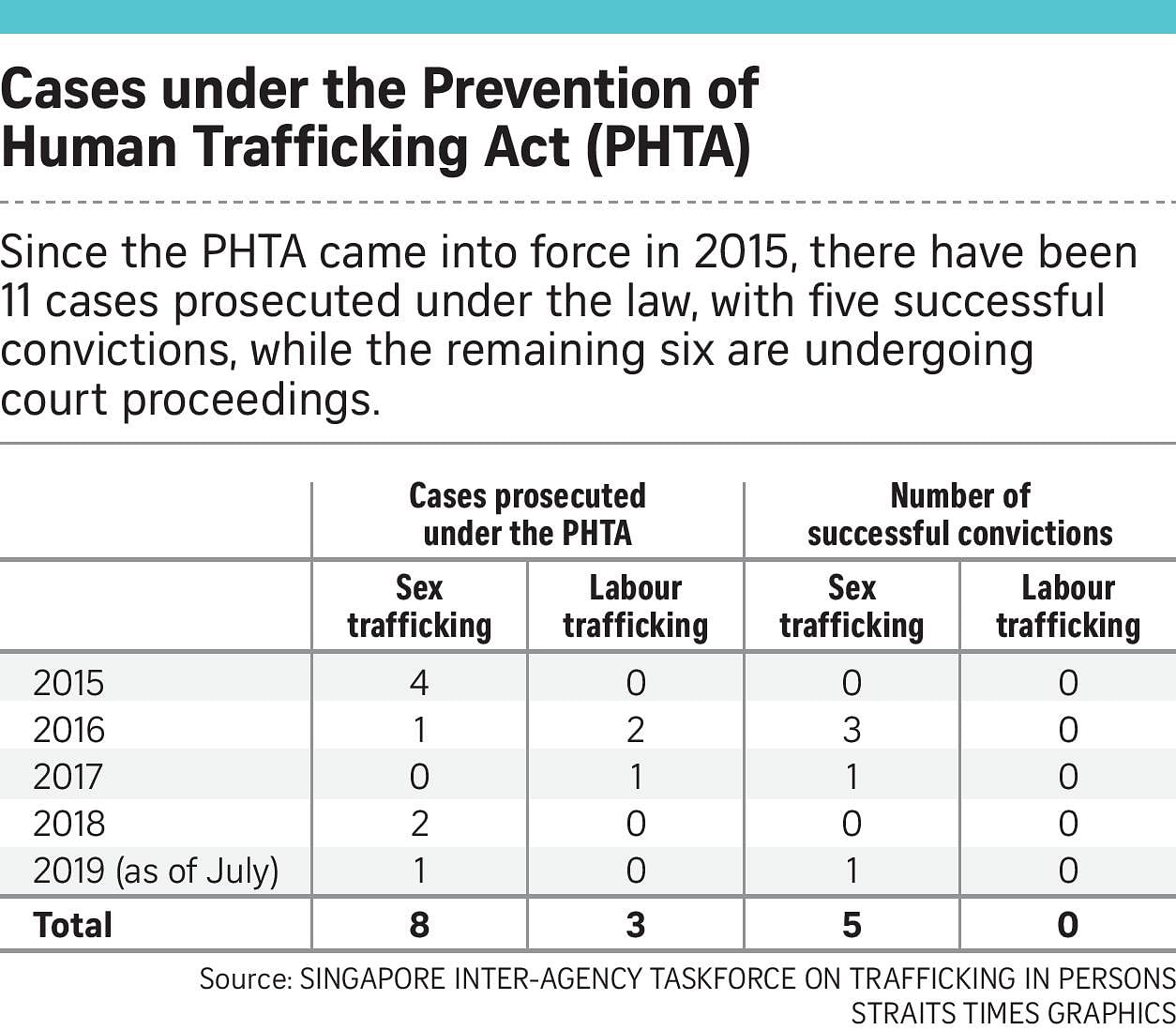Inaccuracies in annual US trafficking in persons report: Singapore
Govt task force says report misrepresents ground realities of trafficking situation here
Sign up now: Get ST's newsletters delivered to your inbox

The US State Department's Trafficking In Persons report has classified Singapore's anti-trafficking measures as not fully meeting the minimum standard for the elimination of trafficking but making significant efforts to do so. The Singapore task force says current laws against trafficking are tough but fair.
ST FILE PHOTO
An inter-agency task force chaired by the Home Affairs and Manpower ministries has refuted claims made in the annual Trafficking In Persons (TIP) report, released last month by the US State Department, on the trafficking situation here.
The task force said it finds inaccuracies in the United States' TIP report every year, adding that it also misrepresents ground realities.
The report said that there were 16 trafficking cases investigated in Singapore last year, of which 10 involved sex trafficking and six were related to labour trafficking.
It said that Singapore saw an increase in the number of potential trafficking victims last year, with 32 alleged victims - nine for sex trafficking and 23 for labour trafficking.
But the task force here said that after investigating the 16 cases, none was substantiated as trafficking.
In 2017, only one sex trafficking case was substantiated, said the task force.
This was after the US TIP report claimed there were 34 cases investigated that year, of which 22 involved alleged sex trafficking cases and 12 alleged labour trafficking cases. The report said there were 20 potential victims here in 2017.

Since the Prevention of Human Trafficking Act (PHTA) was enacted in 2015, there have been 11 cases of human trafficking prosecuted here under the law, said the task force.
Eight cases were related to sex trafficking, while the other three involved labour trafficking.
To date, five of the sex trafficking cases have led to successful convictions. The six remaining cases are still undergoing court proceedings.
The task force released the data in response to queries from The Straits Times regarding the TIP report, which ranks governments based on perceived efforts to acknowledge and combat human trafficking.
The task force said it disagrees with the report's classification of Singapore's anti-human trafficking measures in the Tier 2 category, which is assigned to countries that do not fully meet the minimum standards for the elimination of trafficking, but are making significant and increasing efforts to do so.
Said the Singapore task force: "We do not agree with the US' classification of our anti-TIP efforts in the Tier 2 category. Our laws against TIP are tough but fair, and our approach to human trafficking is uncompromising, just like our approach towards combating any other crime."
The US TIP report said that Singapore authorities frequently prosecute and convict cases with indicators of forced labour under other kinds of laws with lower penalties, instead of the PHTA.
It said: "Some non-governmental organisations believed authorities set unreasonable standards for what qualified as the crime of trafficking and lacked an understanding of trafficking indicators such as indebtedness, psychological coercion, and deception, which hampered PHTA enforcement."
But the Singapore task force said traffickers have been deterred from operating here because of "tough domestic laws, outreach efforts and preventive enforcement efforts".
"We strongly encourage the US to contact the task force to seek any clarifications and fact-check before publishing the annual TIP report, and to take the responsible action of correcting any inaccuracies post-report," added the task force.
In 2016, the Singapore task force launched the National Approach Against Trafficking in Persons to introduce new anti-trafficking measures. These include investigations into trafficking offences committed online, where perpetrators use social media platforms to entice young victims to provide sexual services to clients for money.


